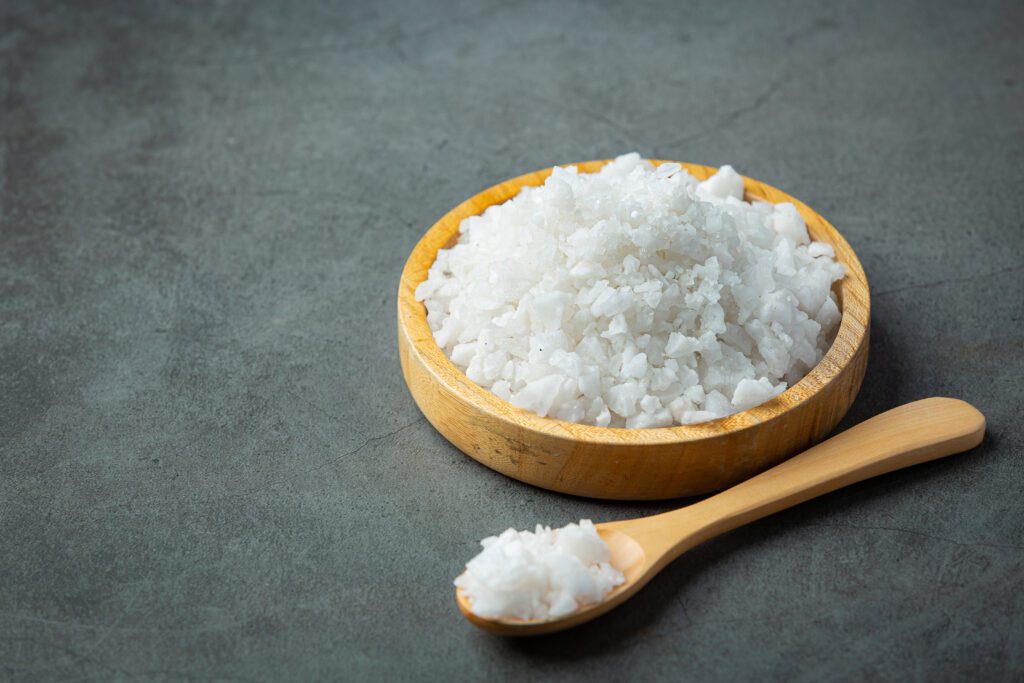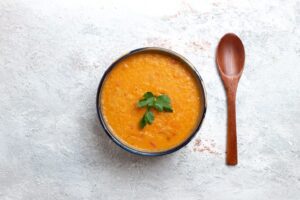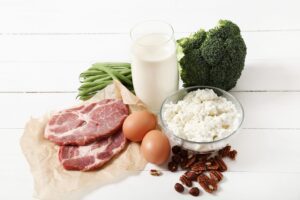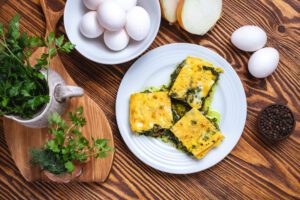What a person eats can greatly affect the health and healing process of cancer patients. Tiny diet changes can either boost or hinder treatments. ” Does salt cause cancer?” is a question everyone tends to ask. Can having a lot of salt harm cancer patients? We’ll delve into this significant subject, show findings from studies, and give some tips that could assist cancer patients.
Table of Contents
Salt-Friend or Enemy?
Salt, it’s common in kitchens everywhere, right? Everyday stuff, but too much can cause health problems. For cancer patients, it’s even worse, their immune system isn’t strong. High salt, stomach cancer, studies prove it. Plus, inflammation, high blood pressure, and kidney troubles can come from too much salt.
But many wonder, “does salt cause cancer?” The question has led to much research and debate. While it does not directly cause cancer, excessive salt consumption has been linked to an increased risk of stomach cancer. This problem is not just a theory, real-life data and scientific research support this risk. During cancer treatment, every small dietary choice can be quite impactful. So let’s understand why excessive intake of salt is dangerous and how cancer patients can adopt a safe and healthy lifestyle.
The need for salt and its risks
What is the importance of salt?
Role of Sodium:
- Transmitting nerve signals.
- Regulating muscle contractions.
- Maintaining fluid balance.
Without sodium, our cells and organs do not function properly. But when salt consumption goes in excess, it disrupts the body’s balance. This imbalance raises the question, does salt cause cancer? While the direct causation is still debated, the risks tied to high salt consumption, especially for cancer patients, are concerning.
Types of Salt Used Commonly

- Table Salt: Processed and enriched with iodine.
- Sea Salt: Natural and minerals-rich.
- Himalayan Pink Salt: A good source of trace minerals.
- Kosher Salt: Coarse texture and commonly used in cooking.
All of these may have different tastes and textures, but their impact on the body is the same if consumed in large quantities. Therefore, for those questioning does salt cause cancer, or the link between salt and cancer, the answer lies in moderating the intake of these salt types to mitigate potential risks.
Does Salt Cause Cancer?
The question “Does salt cause cancer?” is often a part of research and medical discussions. A direct link between salt and cancer has not yet been fully proven, but there are some strong associations, especially in the case of stomach cancer. High-salt diets are quite prevalent in countries like Japan and Korea, where stomach cancer cases are also high.
Mechanisms That Increase Cancer Risk:
- Inflammation: High salt damages the stomach lining, leading to chronic inflammation, which can be a precursor to cancer.
- Helicobacter Pylori Infection: High salt promotes the growth of Helicobacter pylori bacteria, which increases the risk of stomach cancer.
- DNA Damage: Salt weakens epithelial cells, making exposure to carcinogens easier.
Limiting daily salt intake may be an important step in preventing cancer, according to studies.
Why is there extra risk for cancer patients?
The immune system of cancer patients already becomes weak during treatment. Excess salt can make their condition more complicated. This amplifies the concerns related to does salt cause cancer and highlights why cancer patients should focus on a low-sodium diet.
- Weakened Immune System: High salt intake promotes inflammation and oxidative stress, which weaken the body’s defense mechanisms.
- Blood Pressure Issues: Excess salt can raise blood pressure to dangerously high levels, which is dangerous for the heart and kidneys.
- Fluid Retention: Sodium disturbs the body’s water balance, which increases swelling and discomfort.
Case Studies And Solutions
Case Studies That Show the Connection Between Salt and Cancer Risk
Case Study of Japan:
- Japan is a high-salt diet country where preserved foods such as pickles and soy sauce are quite prevalent.
- Stomach cancer cases are significantly high here, which has been linked through research to high sodium consumption.
Global Statistics:
- According to a report by the World Cancer Research Fund (WCRF), excess salt is a strong risk factor for stomach cancer.
- Cancer rates are higher in populations with processed and preserved foods.
How To Intake Salt
A low-sodium, well-balanced diet may be helpful for cancer patients.
Use salt substitutes:
- Use lemon juice and vinegar to enhance flavor.
- Use herbs and spices such as oregano, parsley, and black pepper.
- Use low-sodium sauces and dressings.
Avoid processed foods:
- Replace canned foods and pre-packaged snacks with fresh and home-cooked meals.
Read food labels:
- Check the sodium content of packaged food items and prefer low-sodium alternatives.
Practice portion control:
- Adjust the portion size of meals and limit processed ingredients.
Benefits Of Low-Sodium Diet
- Inflammation is reduced: the risk of chronic inflammation is significantly reduced.
- Supports recovery: low sodium strengthens the immune system and improves treatment outcomes.
- Overall health improves: blood pressure and kidney health remain stable.
How to empower cancer patients
Tackling cancer can be tough. However, a balanced diet may boost patient results. It’s crucial to chat with a nutrition expert and health team regularly. Watching our salt use is one manageable change.
Conclusion
Salt plays a tricky role for those with cancer. Necessary for body functions, too much salt can raise inflammation and cancer chances. Eating wisely and keeping sodium low is vital for cancer patients.
FAQs
Does salt directly cause cancer?
Salt does not directly cause cancer, but high-salt diets significantly increase cancer risk, especially stomach cancer.
What should be the daily salt limit for cancer patients?
According to the WHO, adults should not consume more than 5 grams (1 teaspoon) of salt, and cancer patients should avoid it.
Which foods are naturally high-salt?
Canned soups, smoked meats, pickles, and processed snacks have naturally high sodium.
Does a low-sodium diet help recovery?
Yes, a low-sodium diet supports the immune system and improves the recovery process.
What are the best salt substitutes?
Lemon juice, herbs like oregano and parsley, and vinegar are the best alternatives to enhance flavor.









